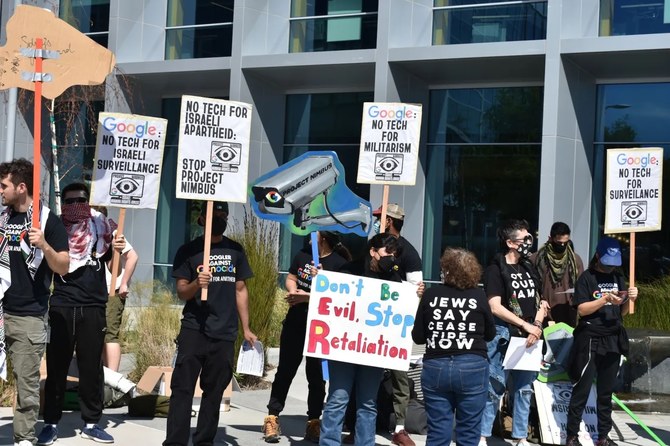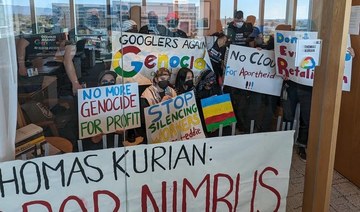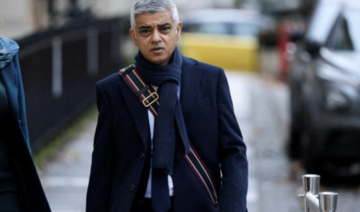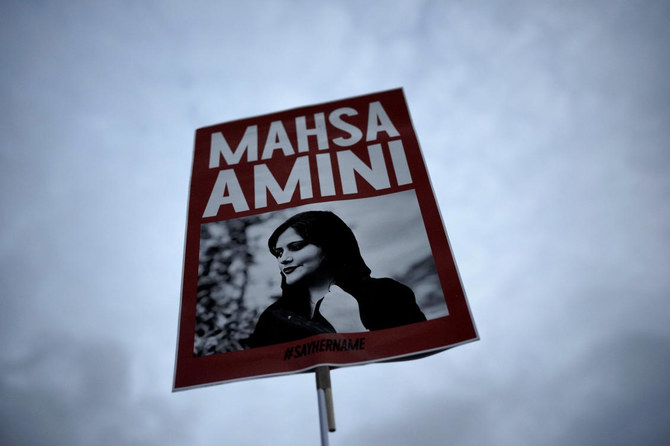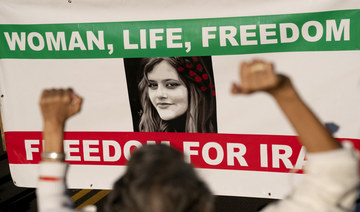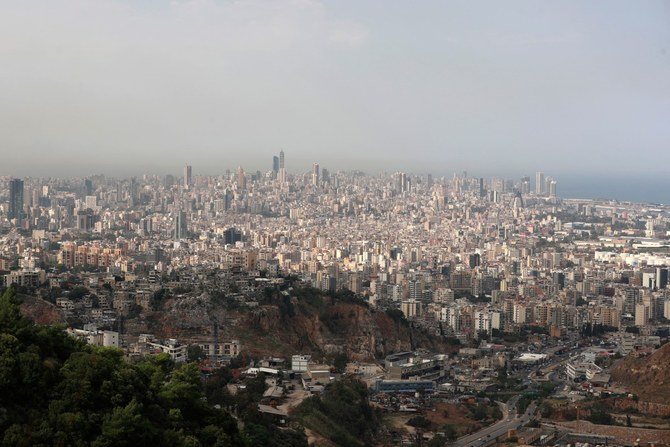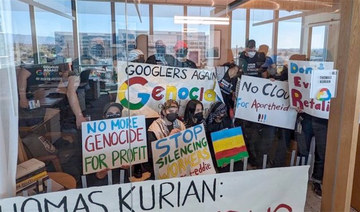LONDON: A number of Google employees have lost their jobs and nine have been arrested following protests against the tech giant’s $1.2bn Project Nimbus contract with the Israeli military.
The demonstrations, organized by Googlers Against Genocide and associated with the group No Tech for Apartheid, involved a 10-hour sit-in at Google’s sites in New York City and Sunnyvale, California.
The protesters occupied the office of Google Cloud CEO Thomas Kurian in California, prompting police intervention.
“Physically impeding other employees’ work and preventing them from accessing our facilities is a clear violation of our policies and completely unacceptable behavior,” the company said in a statement.
It added the decision to terminate the employees’ contracts was taken following individual case investigations and that the company would continue to take action as necessary.
In a statement on Medium, Google workers affiliated with the No Tech for Apartheid campaign called the decision to terminate the 28 employees a “flagrant act of retaliation” and said staff members who did not directly participate in Tuesday’s protests were among those who lost their jobs.
“Despite Google’s attempts to silence us and disregard our concerns, we will persist,” said Jane Chung, spokesperson for the protesters.
Announced by Google and Amazon in 2021, Project Nimbus has faced criticism for providing advanced AI and machine-learning capabilities to Israel’s government.
Amid the ongoing conflict, No Tech for Apartheid launched a petition urging both companies to cancel the project, alleging complicity in Gaza’s ethnic cleansing.
Google’s statement said the Nimbus contract was “not directed at highly sensitive, classified or military workloads relevant to weapons or intelligence services.”
Sources have also indicated that both Google and Amazon are bound by stringent contractual obligations that prevent them yielding to boycott pressure, effectively trapping them in the current situation.
The protests come in the wake of allegations that Google is silencing pro-Palestinian voices.
One of the fired workers protested during a presentation by Google’s Israel managing director in New York City.
Employees have demanded that the company stop “the harassment, intimidation, bullying, silencing, and censorship of Palestinian, Arab, and Muslim Googlers.”
They have also demanded that Google address “health and safety issues” in the workplace, which arose from the “mental health consequences of working at a company that is using their labor to enable a genocide.”



